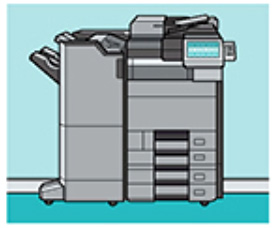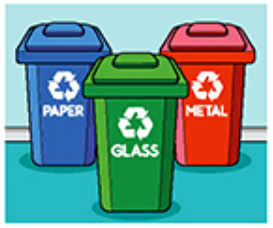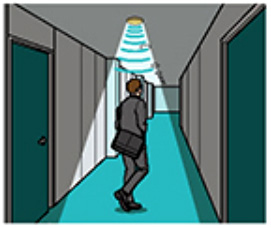Exercise 1
A. Listen to a radio interview with Kyra Sharma, an expert in public transport. Why has she written her book?
1 to present technological solutions to transport problems
2 to suggest why cities need good public transport systems
3 to say that governments should spend more on road building
B. Listen again and complete the information on the back cover of Kyra Sharma’s book. Use one to three words in each gap.
TRAVEL CHAOS
KYRA SHARMA
Kyra Sharma is a university lecturer and (1)……………. in public transport.
This book shows
• why the (2)……………. is the worst way to travel in cities and the least efficient use of 3 .
• how congestion on (4)……………. causes serious air pollution and (5)……………. problems.
In Travel Chaos, Sharma studies the transport solutions that (6)……………. could give but says that these better ways to travel and power our vehicles are (7)……………. .
Dr Sharma wants governments to (8)……………. on public transport and gives examples from developed Asian countries such as Hong Kong, Korea and Singapore.
The book also looks at ways European cities are using (9)……………. in public transport and promoting walking and cycling.
Dr Sharma believes our cities need solutions that offer a good (10)……………. to the people living and working in them.
Answer & Audioscript
A 2
B
1 consultant 2 car 3 space 4 city streets 5 noise
6 technology 7 not enough 8 spend more
9 cleaner energy 10 quality of life
Audioscript
M = Matt K = Kyra
M: The time now is ten to eight and I’m sure many of our listeners sitting in traffic jams on their way to work will be interested in what my guest today has to say. Kyra Sharma, university lecturer and consultant in public transport, is here with me to talk about her new book, Travel Chaos. Kyra, welcome.
K: Thank you, Matt.
M: Kyra, you say in your book that people shouldn’t drive in cities. So, why is the car the worst way to get around?
K: Well, a car feels convenient for the person driving, but it’s not the most efficient use of space. In busy urban areas there isn’t enough space for everyone to drive around. Cars cause massive congestion on city streets, which causes serious air pollution as well as noise problems.
M: You talk in your book about the impact of technology and the transport solutions it offers. For example, electric vehicles, driverless cars, car sharing and software apps to help us get around.
K: Yes, there’s a lot of fantastic technology now: electric cars help us to reduce air pollution, satellite navigation helps us to find quicker routes, and software apps allow us to share cars with people doing similar journeys. It’s great that technology is giving us more efficient ways to travel and power our vehicles, but these things aren’t enough. Our city streets are too crowded for the number of cars we have these days. There is not enough space. We have to reduce traffic on the roads – driverless technology, satellite navigation and electric cars don’t solve that problem.
M: Doesn’t car sharing reduce car use?
K: If it’s real ridesharing with several people sharing a car, not one person hiring a car, then yes, but it’s much better to ‘rideshare’ on buses and trains.
M: So, what is the solution? How should governments plan urban mobility?
K: Well, they should simply spend more on public transport. I mean mass transit systems including urban trains, underground or metro, buses and trams. It’s the most efficient way to get around in a big city. As I explain in the book, there are excellent examples in developed countries in Asia: for example, in Hong Kong, Korea and Singapore.
Most European cities are now using cleaner energy in public transport, and finding ways to reduce the number of cars on the roads. For example, London has a congestion charge and other cities could use a similar method to reduce the number of cars in the centre. Major cities are now promoting walking as part of a healthier lifestyle, and cycling by having more cycle lanes and public bike-hire schemes. Our cities are growing very fast and we need solutions that improve the quality of life for the people living and working in them.
M: Kyra, thank you for coming to talk to us today. So, that was Kyra Sharma talking about her new book, Travel Chaos. Coming up next the latest travel news …
Exercise 2
A. Elena and Ted have just given a presentation to colleagues. The company they work for is moving to a new site. Listen to the first part of the Q&A session and match the names (1–3) with the topic(s) (a–d).
1 Steve
2 Keira
3 Ben
a travel to other sites
b a place to hold meetings
c the timing of the move
d some staff moving to the temporary office
B. Listen again and decide if the statements are true (T) or false (F). In pairs, correct the false statements.
1 Staff will no longer have their own office.
2 There will be one meeting room on every second floor at the new site.
3 Most of the staff will move to the new site in May.
4 Staff will have to take a thirty-minute bus trip to reach the temporary site.
5 Ben will not be moving to the temporary site.
Answer & Audioscript
A
1 b 2 c, d 3 a
B
1 T 2 F (2–3 rooms on each floor) 3 T
4 F (It’s a 20-minute ride.) 5 T
Audioscript
E = Elena S = Steve T = Ted K = Kiera B = Ben
E: So it looks like we’re running out of time and I do want to give you a chance to ask a few questions. If I can answer your questions, I will, but please understand I may have to get back to you on certain points. I hope that’s OK. So, does anyone have a question? Yes, Steve.
S: Thanks. I had a question about the open space issue.
E: Sure. What did you want to say?
S: Personally, I don’t mind working in an open-plan office, I’ve done it before. But I know it’s not for everyone. Most of our communication with clients is by email, so noise really isn’t a problem anymore. My question is about meetings.
E: What do you mean, exactly?
S: Well, I just want to know if there will be rooms provided to hold meetings?
E: I believe so. So, the question is about meeting rooms. Ted, can I pass this one to you?
T: Sure. In the new building there’ll be five closed meeting rooms on each floor, as well as some open space for more informal one-to-one meetings. You can reserve the closed meeting rooms using an online booking system. It should work very well. I hope that answers your question, Steve?
S: Yes, it does, thanks.
E: Kiera, do you have a question?
K: Yeah. Can I ask about the timing? When does the move take place?
E: It’s a good question, thanks. I didn’t mention that, you’re right. The final stage of the move is scheduled for the end of May. I’m not sure about the exact dates; it will depend on the team. But you’ll be told a long time before you have to move. Does that answer your question?
K: Not quite. You said we’d have to move into temporary office space first.
E: That’s right. Most of you will go straight to the new site, but some people will move temporarily to the Oxford Road office while they finish the building work. OK?
K: Yeah, thanks.
B: I have a question, Elena. Can I … ?
E: Yes, Ben, of course.
B: How do we get to and from the Oxford Road branch? It’s quite a long way from here.
E: Thanks for your question. Yes, the company will put on a shuttle bus service between the two sites which should make it easier. I understand it takes around twenty minutes. Does that help?
B: Sure. And do you know who’s actually moving over there?
E: So, Ben asked who’s moving to Oxford Road, right?
B: Yes.
E: As I understand it, it’s only the payroll and finance departments. Anyone who is moving has already been told about this.
B: So I guess I’m not on the list. That’s good. I really didn’t want to move twice!
C. Listen to the next part of the Q&A session and answer the questions.
1 How does Jen feel about the move to the new site?
2 What is she worried about the most?
3 How does Elena manage Jen’s question?
4 Why do staff members need storage space?
5 What does Jen want to do?
Answer & Audioscript
1 She doesn’t like it and thinks it will create lots of problems.
2 working in an open-plan office / who will sit where
3 She checks she has understood the question by asking for clarification, explains she can’t answer it, thanks Jen for the question and asks Ted to respond.
4 to keep the office tidy / for their files
5 She wants to talk to someone and complain about the procedure for allocating desks.
Audioscript
E = Elena J = Jen T = Ted
E: OK. Are there any more questions? It looks like we’ve got time for one more.
J: Yes, I have a question.
E: OK, Jen, go ahead.
J: To be honest, Elena, I’m really not happy about this move and I’m definitely not happy about moving from my own office into an open-plan office. Unlike Steve, I can see lots of problems with that. Who decides who sits where, for example?
E: Sorry, you’re asking how we allocate space. Is that right?
J: Yeah, because I don’t see that working very well. I think the best places will all be reserved, anyway.
E: Well, … I’m not sure I can answer that, but thanks for the question. Ted, can I ask you to respond to this one?
T: Of course. So to answer your question, Jen, we’re not talking about hot-desking, …
J: Oh, right, because that’s what I’d heard.
T: No, not at all. Everyone will have their own desk. And these will be allocated fairly; no one will be allowed to reserve the ‘best desk’. We’re also introducing a clean-desk policy. So this means we need to keep the space as tidy as possible, but everyone will have storage space for their les; we hope that will help.
J: So, not only do I have to share my office with ten other people, but now I can’t even choose my own desk. What if I don’t like where I’ve been placed? Who can I speak to about that?
E: I’m sorry, I’m not sure what you mean.
J: Well, basically, I want to know who I can complain to …
Exercise 3
A. Listen to Patricia, the Facilities Manager, and her team discussing ideas for the G.O project. Put the things in the order they are mentioned.




B. What three options do they want to find out more about?
C. Listen again and complete the notes. Use one to three words in each gap.
REDUCING ENERGY COSTS
• LED lights in new building:
– motion sensors switch the (1)……………… on and off in (2)………………, corridors, storerooms, the stairs and in the (3)………………
• Costs from computer servers:
– electricity to run the (4)………………
– cooling and ventilation to keep the server room at the (5)………………
Possible solution: Use a cloud computing service
REDUCING WASTE
• Employees are using too much paper – the current printers are old and the (6)……………… is terrible. They also use a lot of toner.
Possible solution: New multifunctional printers.
• Waste levels currently two kilos per person per day.
Possible solution: More recycling
Reducing waste is important for company’s (7)……………… and (8)………………
Answer & Audioscript
A
Order the items are mentioned in: 1 motion sensors, 2 cloud computing, 3 printers, 4 recycling scheme
B
cloud computing, multifunctional printers, recycling scheme
C
1 lights 2 toilets 3 car park 4 servers/machines
5 right temperature 6 (print) quality 7 image
8 reputation (as a green company)
Audioscript
P = Patricia D = Davy J = Joe
P: Now that we’ve measured our energy use and waste, we can use that to help us plan the GO project and decide what our priorities are.
D: Yes, it’s very important to have this data. Obviously, I can see lighting is a big cost at the moment but the LED lights in the new building will help reduce costs there.
P: And the new motion sensors they’re installing.
D: Motion sensors?
P: Yes, these can detect movement in certain areas and switch the lights on and off without anyone having to touch them. Places like the toilets, corridors, storerooms, the stairs and in the car park. But the new building will have them everywhere.
D: Good idea. That’s the lighting cost reduced. What else can we do?
P: Well, as you can see from the pie chart in my report, the computer servers are costing us quite a lot of money. First of all there’s the cost of the electricity to run the machines and second, there’s the cost of cooling and ventilation to keep the server room at the right temperature. Are there any possible savings there?
D: What about ‘cloud computing’? I mean, do we need servers in the office now? It’s possible to use a cloud computing service.
P: Do we know what the options are? What are the security risks? And the costs of the service?
D: I understand there are fewer risks with cloud computing than having our own servers. I’ll talk to the IT department, Patricia. We’ll look into the options and the costs and tell you what we find out.
P: Thank you. Now what about waste, especially paper use? I know that paper itself is not very expensive for the company compared to other costs, but everyone is printing too much. The current printers are old, always break down and some employees complain they have to print documents three or four times because the print quality is so terrible.
J: They are terrible! When you think about the paper and toner we waste because of this, then it is clear they are not cost-effective. I think we need new multifunctional machines that print, photocopy and scan.
P: I agree! There’ll be costs to upgrade, obviously, but we will save money, too. Joe, would you find out more about those for us? Get some prices and see how we could do this?
J: OK, Pat, I’ll do that.
P: Right, so Davy, you’ll find out more about cloud computing, Joe, you’ll work on the printers and I want to look at a new recycling scheme to find out how we can recycle more of our waste. I mean, two kilos of waste per person per day is not good. I know we won’t make big savings, but it is important for our image and our reputation as a green company to help protect the environment. Sorry. Hello! Really? OK, I’ll come down. Sorry, we’ll have to end there. There’s a problem at reception.
D: OK, sure
J: No problem. See you later.
Test
1. You will hear eight short recordings twice. For questions 1–8 choose the correct answer.
1 What is the company going to do to help the environment?
a reduce air pollution
b recycle paper in the offices
c use less water
2 What is the best way to travel around the city?

3 What advice does the woman give her colleague?
a Go to bed early.
b Prepare well for the presentation.
c Check the presentation slides.
4 How has the council made the city greener?
a by introducing more cycle lanes
b by introducing car sharing
c by introducing electric buses
5 What does the man need to improve?
a his relationship with colleagues
b his management skills
c his admin skills
6 What does the woman do at the end of the meeting?
a invite questions
b thank everybody
c check understanding
7 What is the company going to do with its product?
a use less plastic packaging
b make it from recycled materials
c reduce waste by improving how it’s produced
8 What kind of energy is the company going to start using?

Answer & Audioscript
1 c 2 b 3 a 4 b 5 c 6 c 7 c 8 a
Audioscript
1 What is the company going to do to help the environment?
A: How can we make our company more environmentally friendly?
B: Well, we don’t create a lot of pollution. We don’t have factories so we don’t contribute to air pollution.
A: Yes, but there is still office use, like paper or water.
B: I think we do our best with paper recycling, so what about putting signs in bathrooms to turn taps off? Reduce water waste.
A: I think that’s a good start.
2 What is the best way to travel around the city?
A: Hey, I’m going to Almería in Spain next month for a business trip. Do you know anything about the city?
B: Yes, a lot! My grandmother is from a village near there.
A: Really? Great! Is it easy to get around?
B: Really easy. It’s no problem at all. There isn’t a metro, but the bus service is good and you can easily walk everywhere you want to go. You should do that. There are good cycle lanes too, but I don’t know where you could hire a bike.
3 What advice does the woman give her colleague?
A: You’ve got your presentation tomorrow! How are you feeling?
B: Well, I’ve done a lot of work on it, but I’m still really nervous.
A: It’s natural to worry about presentations. I’m sure you’ve done lots to prepare and I think your presentation slides are great.
B: That’s good to know, thanks!
A: Just make sure you have a good night’s sleep. You should try to be in bed by 10 p.m. At least you’ll feel refreshed for tomorrow.
4 How has the council made the city greener?
Here in Altena I am pleased to announce that our city is one of the cleanest in the country. And by cleanest, I mean greenest! This year there were thousands fewer cars on the road. And why? Thanks to the council’s idea of people sharing trips to work with fellow car drivers. And more and more people are seeing the benefits of cycling to work, too. Next year, we also hope to introduce greener buses. Hopefully we can be THE greenest city in the country!
5 What does the man need to improve?
Hi Adam, thank you for coming to see me today. I just want to give you some feedback on your first few months with the company. Firstly, we are really pleased with how you work with others. We think this is really positive. However, you should try to work on your admin skills and also try to keep your desk tidy. But overall, we’re pleased with your progress, and your management skills are also excellent.
6 What does the woman do at the end of the meeting?
So, in conclusion, it is absolutely essential to keep encouraging school trips to our national parks. It will educate children and we will also see financial benefits in the long term. Now, are the main points of my talk clear? I can clarify anything you need in more detail.
7 What is the company going to do with its product?
A: We still need to think about how we can make our toothpaste more environmentally friendly. Now, we can’t change the plastic tubes. That has to stay, but we can think about our processes or the packaging. What do you think?
B: Well, I think we have to keep the materials the same at the moment. The boxes are already recyclable, but we could do something in the production process to cut down on waste and pollution.
8 What kind of energy is the company going to start using?
So, we’ve studied how we can use more alternative energy in the company and we have changed our minds about energy that comes from burning wood. We researched it and it’s much worse for the environment than we originally thought. We think the best option is to go for solar power. We can put panels on the tops of our buildings. Wind power was a good option but it isn’t very realistic in our location. It’s not very windy here!
2. Look at the notes from the management meeting from Coolaids Ltd. Some information is missing. Listen to the Managing Director’s update to the heads of department and complete the meeting notes with one or two words.
MD messages:
Overall, very happy with efforts to find (1)…………….. .
Departments need to offer staff more (2)…………….. .
The majority of staff travel to work by (3)…………….. .
Need to research giving staff (4)…………….. .
Sales this year are (5)…………….. above the yearly average.
There will be (6)…………….. adverts next month.
The summer party will be in August at (7)…………….. .
Answer & Audioscript
1 green solutions 2 transport options 3 car
4 bike loans 5 16% 6 newspaper 7 Central Gardens
Audioscript
Listen to the Managing Director’s update to the heads of department.
Hello everyone. Before we start the meeting, I want to give you an update on our overall progress. Firstly, I want to say thank you for everything you have done to help us find green solutions for the company. I am really pleased with all of your efforts. I hope you can do the same with our new travel initiative.
We have improved our production processes but now we need to think of what else we can do. Firstly, we really all need to give our staff more transport options. I know the train stops only minutes away from our door, but still nearly all our staff come by car. This is no good both for the environment or their health. We could take away the car park, but this doesn’t seem fair for everyone. Perhaps we could explore a system of bike loans. Jen, could the HR department look into this, please?
I also want to mention our sales figures. Last year was disappointing with figures ten percent below our yearly average. However, the positive news is that this financial year we are sixteen percent above our yearly average. So, a big well done to the sales team! And also the marketing team. After the success of the recent radio advertisements, we have newspaper adverts in all of the major online papers next month.
Lastly, a quick mention of the summer party. We wanted to hold it at the Royal Park like last year but it’s booked up, so it will be at Central Gardens on the fifth of August. Please let everyone in your departments know.
Related Posts
- Practice Listening Business English Exercises for A2 – Personal development and training
- Practice Listening Business English Exercises for A2 – Managing time
- Practice Listening Business English Exercises for A2 – Future trends
- Practice Listening Business English Exercises for A2 – Performance
- Practice Listening Business English Exercises for A2 – Corporate hospitality
- Practice Listening Business English Exercises for A2 – Environmental protection
